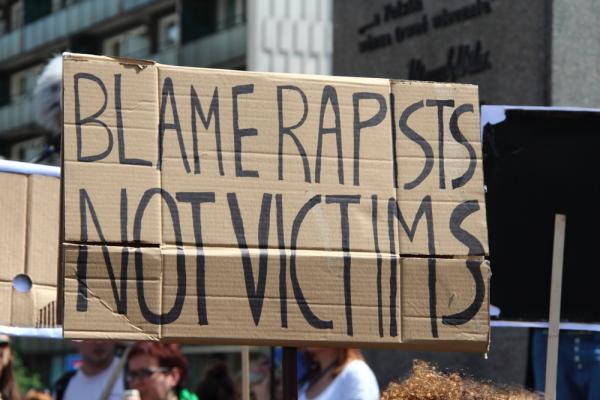"That's messed up, I'm sorry. But it doesn't surprise me, because women tend to lie about it."
That was one friend’s reaction when I told him that Title IX investigators at my university had determined that the person I charged with rape was “not responsible.”
I still read my friend’s sentence over and over. It haunts me. It hurts me. And it's not true.
The narrative that women lie about rape is perpetuated both by comments and actions. Following an "I was raped" assertion, the most likely response, in my situation, is a situational question:
When? Where? What were you wearing? Were you drinking?
Then, a question about the nature of the assault:
Do you think he knew it was rape? Did you say no? Was it, like, violent?
I guess it's easier to believe someone would lie than it is to believe that someone would rape. In some cases, it’s apparently easier to believe that more than 40 women would lie than to believe a once-beloved public figure would rape.
READ MORE: The Myth of Crying Rape
Statistically, 1 in 5 women (and 1 in 71 men) will be raped in their lifetime. The statistics say more than half of these rapes will never be reported to any sort of legal entity, and that's probably in part because of the notoriously low rates of arrest, and even lower rates of conviction. According to the Rape, Abuse and Incest National Network, out of every 100 rapes, only two aggressors will spend any time behind bars. That's 98 survivors who never receive justice, who still need to process their rapes, who still need to find some sort of healing, who will eventually need to tell their stories, who are terrified of telling their stories because of texts like the one above sent to me — they are terrified that they won't be believed.
Speaking from experience, the worst thing that can happen once a survivor bravely tells her story is that the person listening will assume she’s lying because her rapist isn't behind bars. They'll ask if he was convicted, and she’ll say no — and that's the only "no" she’ll feel is ever heard.
And so survivors stay silent. They stay silent because of the risk — the 98 percent chance that their rapists won't be held accountable, the overwhelming odds that they won't have any evidence except their say-so that they're telling the truth.
RESOURCE: I Believe You: Sexual Violence and the Church (eBook)
I often tell people that I have suffered more trauma at the hands of the criminal and civil proceedings I've chosen to pursue than I ever did at the hands of my rapist. I've had to tell my story multiple times to multiple people. I've been scrutinized, interrogated, and recorded.
Women and men who report rape voluntarily yield their privacy and space to heal and undergo intrusive rape kits (which can feel like being violated all over again), probing questions from law enforcement/family/friends, and testimony that forces them to relive their trauma all over again.
These proceedings take months. Years.
The very idea that a statistically significant number of women and men are choosing to subject themselves to the social, legal, and medical ramifications of reporting rapes that never happened for some ulterior motive is absolutely ridiculous. To accuse a woman — or man — of lying about rape is to accuse her of intentionally putting herself through the hell of public scrutiny, knowingly putting herself at risk. And that's why most people who are raped never say anything. The risk is too great.
Women do not "tend to" lie about being raped. They "tend to" never say anything at all.
Got something to say about what you're reading? We value your feedback!

